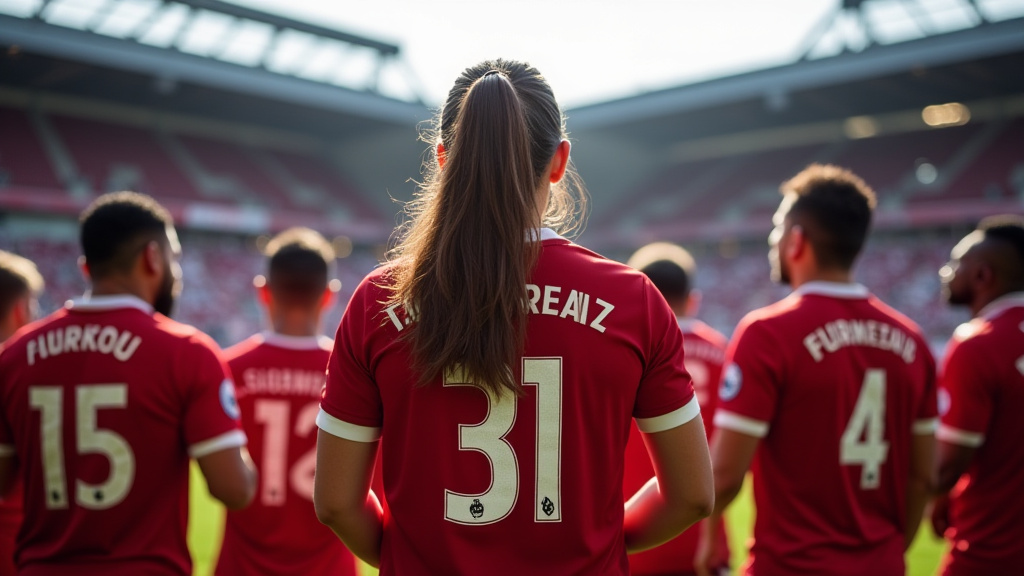Former Liverpool Vice Captain Rachel Furness Announces Retirement
In the world of women’s football, the retirement of a seasoned player always marks a moment of reflection and celebration. Recently, Rachel Furness, the former Liverpool vice captain and a pivotal figure in the sport, announced her retirement. Furness’s career spanned over a decade, punctuated by remarkable achievements, leadership on and off the pitch, and an enduring legacy that resonates with fans and aspiring footballers alike. But what makes her journey so special and impactful? How has she shaped women’s football, particularly within Liverpool and beyond? This blog delves into the career and contributions of Rachel Furness, highlighting her influence and the broader significance of her retirement in today’s rapidly evolving women’s football landscape.
From Rising Talent to Liverpool’s Vice Captain
Rachel Furness’s football journey began long before she donned the red jersey of Liverpool. Born in 1988 in Gateshead, England, she initially made waves playing in Northern Ireland, eligible to represent them internationally through her family heritage. Furness’s versatility on the midfield, combining technical skill with tactical awareness, quickly earned her recognition. Her early years included spells with clubs like Sunderland and Reading, where her determination and goal-scoring ability caught the attention of bigger teams.
In 2018, she joined Liverpool Women’s Football Club, a pivotal moment that significantly elevated her career. Not only did she become a key player, but she also took on the role of vice captain, demonstrating her leadership qualities. Liverpool’s women’s team, with Furness as a guiding presence, was ambitiously working to regain their place among England’s top-flight clubs. Her experience and mentoring helped younger teammates adapt to the increasingly competitive FA Women’s Championship and later the Women’s Super League (WSL).
During her time with Liverpool, Furness was known for her work ethic and consistency. She was not just a player who performed well on game days but also someone who embodied professionalism in training and preparation. Despite facing injuries and club fluctuations, her resilience shone through, inspiring fans and teammates alike.
Impact on Women’s Football and International Career
Rachel Furness’s impact extended well beyond club football. She earned over 40 caps for Northern Ireland, representing the nation in major fixtures including UEFA Women’s Championship qualifiers and the FIFA Women’s World Cup qualifiers. Her international career highlighted her ability to compete at the highest levels and showcased the increasing prominence of women’s football in smaller footballing nations.
One of her standout moments on the international stage came during Northern Ireland’s rise in recent years. Furness’s leadership contributed both on and off the pitch to help Northern Ireland reach historic milestones, including their first-ever qualification for a major tournament—the 2022 UEFA Women’s European Championship. This milestone elevated the profile of women’s football in Northern Ireland and brought renewed attention to players like Furness who paved the way.
Her commitment to Northern Ireland also underscored a broader trend in women’s football where players with heritage links often serve as vital bridges between nations and leagues. Furness skillfully balanced club commitments with international duties, a challenge that many women footballers face given the sport’s growth and increasingly demanding schedules.
Legacy and What Comes Next
Announcing her retirement in 2024, Rachel Furness leaves behind a legacy that goes far beyond statistics. Her career serves as an inspiration for many young players, especially those from less traditional football areas or who may face hurdles balancing international and club football.
As Liverpool continues to build its women’s team into a powerhouse capable of challenging rivals like Chelsea and Manchester City, Furness’s foundational role will not be forgotten. She exemplified how leadership in football is not merely about skill but about resilience, mentorship, and passion for the game.
Looking ahead, Furness has expressed interest in remaining involved in football, whether through coaching or ambassadorial roles to promote women’s participation. This transition from player to mentor is vital as the women’s game continues to expand, needing experienced voices to shape future generations.
Women’s Football and the Road Ahead
Rachel Furness’s retirement invites a broader conversation about the evolving landscape of women’s football. The increased media coverage, sponsorship, and professionalization have created unprecedented opportunities but also new challenges for players. The career span of women footballers is often influenced by financial realities, injuries, and balancing life commitments all within a still-growing sport.
Examples like Furness highlight how leadership and dedication underpin the game’s progress. Her journey encourages discussions about support structures for women athletes, including career planning post-retirement and enhanced resources during their playing years. The impact of seasoned players retiring offers space to evaluate how clubs and associations can nurture young talent sustainably.
Moreover, with women’s football now firmly on the global stage—seen in increased attendance at matches, broadcasting deals, and international tournaments—the legacy of players like Furness will be increasingly recognized. They were not just participants but pioneers who helped elevate the game to its present stature.
Conclusion
Rachel Furness’s retirement marks the end of an era but also the beginning of a new chapter in women’s football. From her influential role at Liverpool to her inspiring international career with Northern Ireland, she has left an indelible mark on the sport. Her dedication, leadership, and resilience set a standard that stretches beyond the pitch and serves as a beacon for future players navigating the path of professional women’s football.
As Liverpool and Northern Ireland continue to develop strong women’s teams, the foundations laid by Furness will support that progress. Her story reminds us of the growing opportunities within the women’s game and the importance of nurturing talent with passion and professionalism.
What do you think Rachel Furness’s legacy means for the future of women’s football? How can clubs and national teams better support players transitioning after retirement? And what lessons can younger players learn from Furness’s career? Share your thoughts and join the conversation below!













